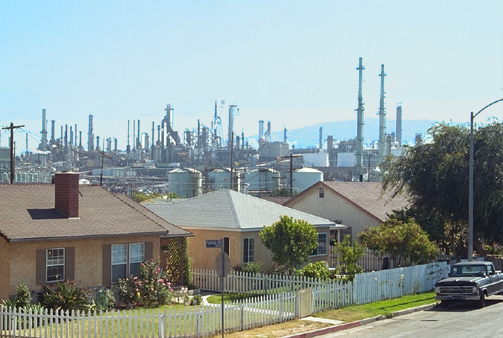Cancer is an assortment of more than 100 types of related diseases all characterized by uncontrolled cell growth. Cancerous cells have altered DNA and DNA expression; these changes can be inherited, or can accrue from damage caused by environmental factors. As cancerous cells continue to grow and divide, they accrue more mutations, are less able to function as normal cells, and displace healthy cells. When cancerous cells grow beyond their usual boundaries and invade other organs and parts of the body, they are said to have metastasized. Metastases are a major cause of death from cancer.
According to the World Health Organization, cancer is a leading cause of death worldwide, accounting for 8.8 million deaths in 2015. The latest estimates of the cancer burden in the US in 2017, from the National Cancer Institute SEER program, are 1.7 million new cases, 600,000 deaths, and 14 million prevalent cases. Leading incidence types are breast (255,180), bronchus and lung (222,500), prostate (161,360), and colo-rectal (125,440).

image from California Air Resources Board
A study published on May 8, 2017, in Cancer used a novel environmental quality index (EQI) representing five environmental domains—air, water, land, built environment, and sociodemographic environment—to assess the burden of cumulative environmental exposures on cancer incidence. The study, County-Level Cumulative Environmental Quality Associated with Cancer Incidence, found that county-level cancer incidence rates were positively associated with poor environmental quality overall. This is the first study investigating exposure burdens across multiple environmental domains, and demonstrates that research focusing on single environmental exposures in cancer development may not address the broader environmental context in which cancers develop.
On Tuesday, July 11, 2017, Dr. Jyotsna Jagai, lead author of the study, and Dr. Richard Clapp, epidemiologist and collaborator with the Cancer-Free Economy Network, discussed the study, its significance and implications, and steps to address the broader environmental context in which cancers develop and reduce disease incidence. Dr. Jagai provided an overview of the study and the primary findings and Dr. Clapp spoke to the broader implications of the study for policy and further research.
Featured Speakers
 Jyotsna Jagai, PhD, MPH, is Research Assistant Professor in the Division of Environmental and Occupational Health Sciences at the University of Illinois at Chicago. As an environmental epidemiologist her research focuses on how ambient environment of residence can affect acute and chronic health outcomes. She completed a post-doctoral fellowship with the U.S. Environmental Protection Agency (US EPA), where her research focused on the burden of cumulative environmental exposures. She worked with a team to develop the Environmental Quality Index (EQI) on the county level for the entire U.S. She continues to collaborate with colleagues at the US EPA to update the EQI and develop versions for smaller geographic scales, such as the census tract. She would like to expand this work to consider the impact of cumulative environmental exposures on other health outcomes as well as consider biomarkers for cumulative environmental exposures. Another aspect of her research focuses on environmental stressors of climate change and aging infrastructure.
Jyotsna Jagai, PhD, MPH, is Research Assistant Professor in the Division of Environmental and Occupational Health Sciences at the University of Illinois at Chicago. As an environmental epidemiologist her research focuses on how ambient environment of residence can affect acute and chronic health outcomes. She completed a post-doctoral fellowship with the U.S. Environmental Protection Agency (US EPA), where her research focused on the burden of cumulative environmental exposures. She worked with a team to develop the Environmental Quality Index (EQI) on the county level for the entire U.S. She continues to collaborate with colleagues at the US EPA to update the EQI and develop versions for smaller geographic scales, such as the census tract. She would like to expand this work to consider the impact of cumulative environmental exposures on other health outcomes as well as consider biomarkers for cumulative environmental exposures. Another aspect of her research focuses on environmental stressors of climate change and aging infrastructure.
 Richard Clapp, DSc, MPH, is Professor Emeritus of Environmental Health at the Boston University School of Public Health and Adjunct Professor at the University of Massachusetts at Lowell. Professor Clapp is an epidemiologist with over forty years of experience in public health practice, research, teaching and consulting. He holds an MPH from the Harvard School of Public Health and a DSc in Epidemiology from the Boston University School of Public Health. He served as the founding Director of the Massachusetts Cancer Registry from 1980-1989, and was formerly the Co-Chair of Greater Boston Physicians for Social Responsibility and an Associate Editor for Environmental Health Perspectives. His research has included studies of cancer around nuclear facilities, in workers and military veterans, and in communities with toxic hazards.
Richard Clapp, DSc, MPH, is Professor Emeritus of Environmental Health at the Boston University School of Public Health and Adjunct Professor at the University of Massachusetts at Lowell. Professor Clapp is an epidemiologist with over forty years of experience in public health practice, research, teaching and consulting. He holds an MPH from the Harvard School of Public Health and a DSc in Epidemiology from the Boston University School of Public Health. He served as the founding Director of the Massachusetts Cancer Registry from 1980-1989, and was formerly the Co-Chair of Greater Boston Physicians for Social Responsibility and an Associate Editor for Environmental Health Perspectives. His research has included studies of cancer around nuclear facilities, in workers and military veterans, and in communities with toxic hazards.
